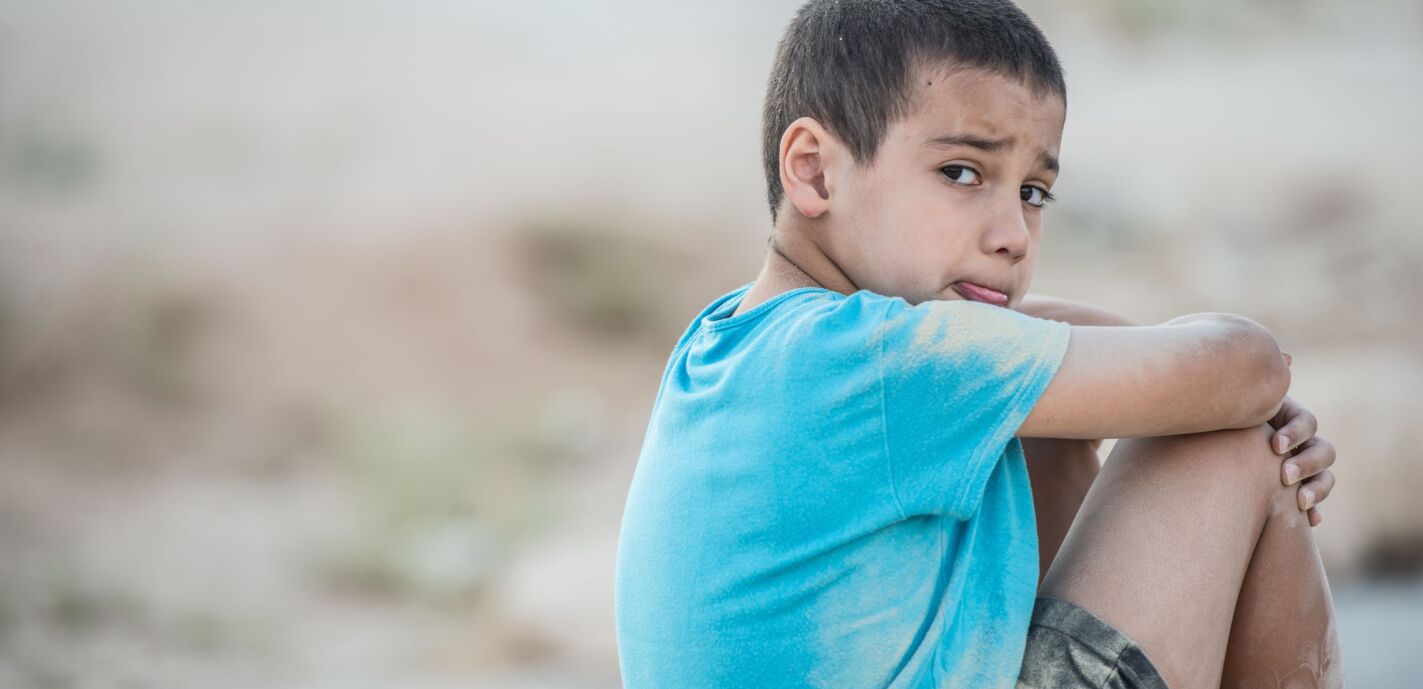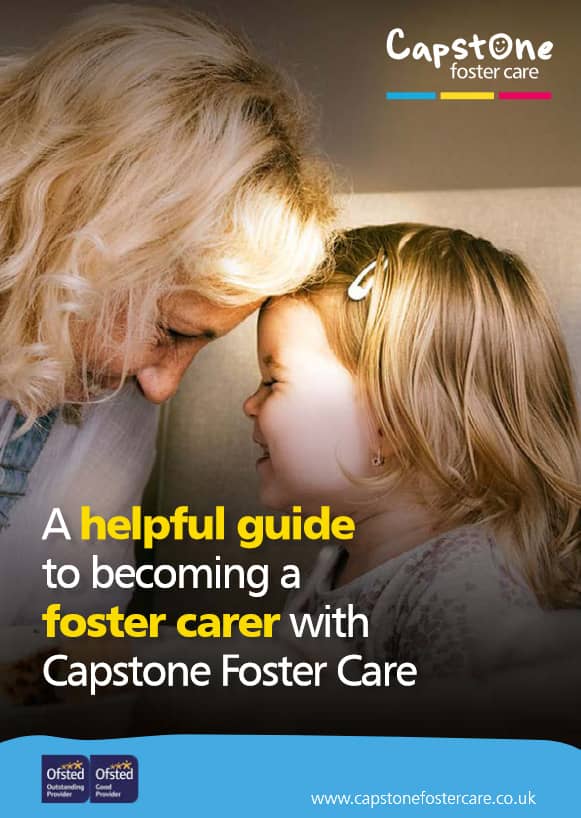


Fostering a disabled child
The role of an independent fostering agency
How to choose a foster care agency
Can I choose who I foster?
What are the benefits of fostering with an independent fostering agency?
What happens when a child is taken into care?
Fostering process: what happens on an initial home visit?
Fostering with local authority vs independent agency
A complete guide to becoming a foster carer
How Are Children in Foster Care Matched with Carers?
Foster Care Budgeting Tips
Becoming A Foster Carer
What is a Care Leaver?
What is a Foster Carer?
Fostering Regulations
How long does it take to become a Foster Carer?
What are the Foster Care requirements?
Changing IFA - Transferring to Capstone
8 reasons why a child may be taken into care
Fostering as a Career
Can you foster if you smoke or vape?
A guide to fostering assessments
LGBTQ+ Fostering
Equality, Inclusion & Anti-discriminatory Practice in Foster Care
What can disqualify you from foster care?
Can you foster if you’re on benefits?
Top transferable job skills to become a foster carer
Fostering as a same sex couple
Fostering while renting
Can you foster if you have mental health issues?
Is there an age limit for fostering in the UK?
Do foster carers get a pension?
How to foster a child: A step by step guide
How do DBS Checks Work?
Can I foster if...?
Mythbusting the top 10 Foster Care Myths
Can I foster if I am disabled?
LGBT Fostering Mythbusting
Can I foster if I have pets?
Can I Foster A Child?
Can I Foster and Work?
Can you Foster with a Criminal Record
Can Single People Foster?
LGBT Family and Foster Care
Fostering across Cultures
Muslim Fostering
Christian Foster Care
Sikh Fostering
Empty Nest Syndrome and Foster Care
Can I Foster?
What is the difference between residential care and foster care?
Fostering Babies and Young Children
What is Kinship Care?
Fostering Babies - Myths
Focusing on Parent & Child Fostering
Fostering Siblings
Fostering Teenagers
Fostering Teenagers - Breaking down the Myths
Fostering Unaccompanied and Asylum Seeking Children
Mother and Baby Foster Placements
Private Fostering
How does therapeutic fostering work?
Young Children Fostering Placements
Difference between short and long-term fostering
Types of self-harm
A Guide to the Foster Care Handbook
Reunification and Birth Parents: A Guide for Foster Carers
What is an EHC Plan? A Guide for Foster Carers
How to prepare a child for becoming a care leaver
Children who foster: impact of fostering on birth children
Fostering LGBTQ+ Youth
How to prepare your home for a foster child
How to help a lonely child: A Guide for Foster Carers
What are the National Minimum Standards for Fostering Services?
10 tips for foster children's education
How to prepare your foster child for secondary school
Tips for coping when foster placements end
Tips for foster parents during Coronavirus
What happens if foster parents get divorced?
5 ways to manage Mother's Day with foster children
Tips for managing foster children's bedtime routines
How to handle foster child bullying
Fostering allowances and the gender pay gap
What discounts can foster carers get?
How to adopt from Foster Care
5 ways to manage Father's Day for children in foster care
8 most common fostering challenges
FosterTalk Membership with Capstone Foster Care
Supporting foster children's contact with birth families
A guide to independent fostering
Keeping Children Safe Online: A Guide For Foster Carers
Movies About Foster Care
Play-based learning strategies for foster carers
A Guide to the Staying Put Program
Why Foster Parent Wellbeing Matters
How to deal with empty nest syndrome
How to recognise signs of depression in foster children
Can you take a foster child on holiday?
Tips and advice on fostering with a disability
10 tips on connecting with your Foster Child
Fostering vs Adoption - What's the difference?
How Fostering can change a future
How to adopt from Foster Care
How to encourage children to read in Foster Care
How to prepare a Foster Child's bedroom
Reading and Storytelling with Babies and Young Children
Supporting Children's Learning
The 20 most recommended books Foster Carers and young people should read
Things you can do when your children leave home
The impact of early childhood traumas on adolescence and adulthood
Anxious Disorders in Foster Children
What is sexual abuse and sexual violence
Foster Child behaviour management strategies
Foster Parent Advice: What to expect in your first year of fostering
Capstone's twelve tips at Christmas
10 celebrities who grew up in Foster Care
Could Millenials be the solution to the Foster Care crisis?
Do you work in Emergency Services?
Form F Assessor and Assessment Training
Foster Care Fortnight
Improving Children's Welfare - Celebrating Universal Children's Day
New Year - New Career - Become a Foster Carer
Young People Charities
Foster carers perform the amazing feat of loving and guiding children and young people from a troubled world to a bright and happy future with positive outcomes. They demonstrate what an affectionate home is like and show them the lifestyle and ways of being that assure a successful adulthood. They provide shelter when life’s storms wash over children who have suffered abuse, neglect, and loss.
Fostering unaccompanied and asylum-seeking children is another challenge for fostering agencies such as Capstone Foster Care. These children are not being removed from their homes by local authorities because of abuse and neglect. They are being removed from countries by friends and families desperately seeking shelter and protection for their defenceless children who are in imminent danger of death and destruction.
When there is a refugee crisis, as there currently is, people in war-torn countries, and people who live in areas where they have little or no protection from harassment or persecution because of their religion, race, political beliefs, social group, or nationality become asylum seekers.
It is an arduous journey from fear of death to the safety of the UK. There is a legal process they must go through to be in the country. In many cases, families send their children ahead of them. Sometimes these children, unaccompanied and asylum seeking, have an extended family member already in the country or a guardian who can take them into their home.
The journey to a new and different country, the seemingly endless red tape of bureaucracy, and the adjustment to leaving their parents and possibly siblings behind is enough trauma to endure. If they have family or friends who can take them in, at least they will have the familiarity of their own language and their own culture to sustain them through this chaotic time.
If there is no one available to care for the unaccompanied Asylum Seeking child, the nearest local authority takes the child into care and finds a foster home for the child. This is a different type of foster care. The child may have come from a home that was safe and secure within itself while being in a very hostile world where no members of the family were secure.
The requirements for the foster carer are not the usual ones. While patience, compassion, and understanding are necessary regardless of the type of placement, with unaccompanied children fleeing life-threatening homelands, special fostering training is needed, so is an understanding of the child’s culture with the ability to nourish that culture.
While there are diverse cultures in the UK, there is a cultural continuity within the country. The institutions, organisations, climate, and community expectations are part of the UK child’s basic knowledge of the world around them. Children and young people entering the UK are coming from different climates and have experienced forms of violence against which there is no protection.
They have been forced to leave their parents and other family members with whom they had a loving bond and about whom they have very real concerns for their safety. The terror of living in a place where they were under attack and living in fear of death as part of their daily lives can leave these unaccompanied children potentially mentally and emotionally scarred. They need a lot of therapeutic support as well as the nurturing and caring that all children in care must have.
An extra stress factor for these children is that their families are not safe and they have no way of knowing if they will ever see their parents and siblings again. And here they are in a strange land, hearing a language that is not familiar to them, being with people who are not like them, and feeling the ever-present fear that has been part of their entire world for an unspecified period of time.
Capstone Foster Care strives to find homes for unaccompanied and asylum-seeking children that can provide the atmosphere that is appropriate in terms of language, culture, and religion. We have received feedback from some of the unaccompanied children that we have placed, and they have described their positive experiences of foster care. The elements that made the placements positive for the children began with their sense of belonging and inclusion in their foster family.
One of the subtle but crucial assets that these children need to find in their foster homes is an atmosphere where their experiences are recognized but they are not pressured to talk about them if they do not want to. Conversely, if they want to talk about their experiences, they are allowed to.
Fostering an asylum seeking child calls for a deep compassion for the trauma they suffered externally as well as emotionally. They are likely to be homesick for a home that does not exist, and maybe never existed except in the contained confines of their parents’ love.
The child does not know if the UK is to be a forever home or if they will at some time be able to return to their native home. The child does not know if they will ever see their parents again or if they do, will their parents come to them or will they return to their parents.
The child’s entire world is constructed on shifting sands. The role of the foster parent is to provide a solid and comforting basis that provides as much of an echo of the culture to which the child belongs. The foster carer has to protect the child’s heritage while opening a window to any eventual outcome and showing that it can be and will be a positive outcome.
Some foster carers will have had backgrounds where they are aware of the type of support that unaccompanied children need. Our fostering team is able to provide the type of support required so that they can offer stability and suitable care to these young people and children. The team is on standby 24/7 to help in any situation.
Other foster carers may not have the essential background, so fostering services will provide their carers the training needed in order to highlight the needs of unaccompanied children and the roles and responsibilities of the foster carer. In a perfect world, we could match the foster carers to the culture and language of the unaccompanied child. In the real world, we ensure that our foster carers make themselves culturally aware of the children’s backgrounds in order to understand their needs and issues.
Foster carers will need to find the right education provision for unaccompanied children and be ready, willing, and able to help them to achieve and promote learning. While the placement may not be a permanent one, it is entirely possible that the child will grow to adulthood in foster care. Fostering demands that carers find that delicate balance between living in the now and preparing for an uncertain future.
As with all children in care, unaccompanied children need to have an environment where they are able to build on their self-esteem and develop friendships with those around them.
However, with unaccompanied children, a plan must also be made that take into account that the children may receive indefinite leave to remain in the UK, possibly without their families. It is also entirely possible that the child may be able to return home. Therefore, it’s important to consider return planning to prepare to meet the needs of these young people while they are in the UK without a long term immigration status.
There are also special requirements for support in accessing good quality legal representation for their asylum applications.
Looking at a case study of an asylum-seeking child from Albania gives insight into the reality of fostering in such a situation.
As foster carers, we aim at change a child’s life, providing them with all the necessary tools to pave their way for a better life. But some children in care have a lot to offer too, children who you can benefit from their experiences, their personalities, their way of thinking and their moral convictions.
In my personal experience, with the foster child placed with us currently Aseldeen, he affected my life, he made me see the world differently. I am a Muslim, a non-practicing Muslim, and that means I do everything as a Muslim except praying 5 times which without them I am not a true Muslim.
This boy moves in, and he just made us feel so small, weak and incomplete. Whatever he is going through in his life, being a child in care, away from homeland, away from his loved ones and living in uncertainty every day, however he never gave up his prayers or drifted away from his religion. I see this boy waking up early morning to do his dawn prayers, he never misses a prayer and when he does he gets very anxious, I give him credit for his commitment, punctuality and most importantly his beliefs, we all do; me, my wife and my children.
One day, me and my wife called him to the living room, I gave him a big hug and I told him” thank you so much, you don’t know what you have done for us, we have been waiting for you for a very long time”. I explained to him what I meant and that his way of life made us reflect on ourselves and especially on our relationship with God. He was happy for us and he said it is good to pray because that is a fundamental element of Islam. For me, that is a life changing act, I feel good about myself, I feel closer to God. And that is thanks to Aseldeen, I wish him all the best and I will never forget what he did for us.”
As well as the usual traits needed for being a foster carer, fostering unaccompanied and asylum seeking children and young people brings with it extra duties and special requirements.
You need to be acquainted with or trained in understanding the child’s culture - as well as being ready to deal with the psychological effects of being sent away from everything the child has ever known to a new country coupled with the trauma of being in a world where their families were in constant danger.
You need to be acquainted with the legal procedures regarding the child’s immigration status.
There are so many impediments, such as the language barrier, the isolation factor, new foods, new surroundings, all the official forms to complete, and a new home. There are also so many uncertainties. Will this be their new home in the long term? Will they ever see their home country again? Is their family safe? Will they ever see their family again? If they do, will they return to their family or will they be reunited in the UK?
There is such a great need for foster carers who can provide the security and safety that provides the only answers available for the frightened unaccompanied and asylum seeking child.
If you want to find out more about how you could help by becoming a foster carer, please contact the Capstone team today by filling out an enquiry form.
If you’ve got any questions or would like to find out more about fostering with Capstone, fill out the form below.
An experienced fostering advisor from your local area will then be in touch.

Start the conversation today. Our team of friendly advisors are on hand to answer any foster care questions you may have. We can offer you honest and practical advice that can help you decide if becoming a foster carer is the right path for you.


